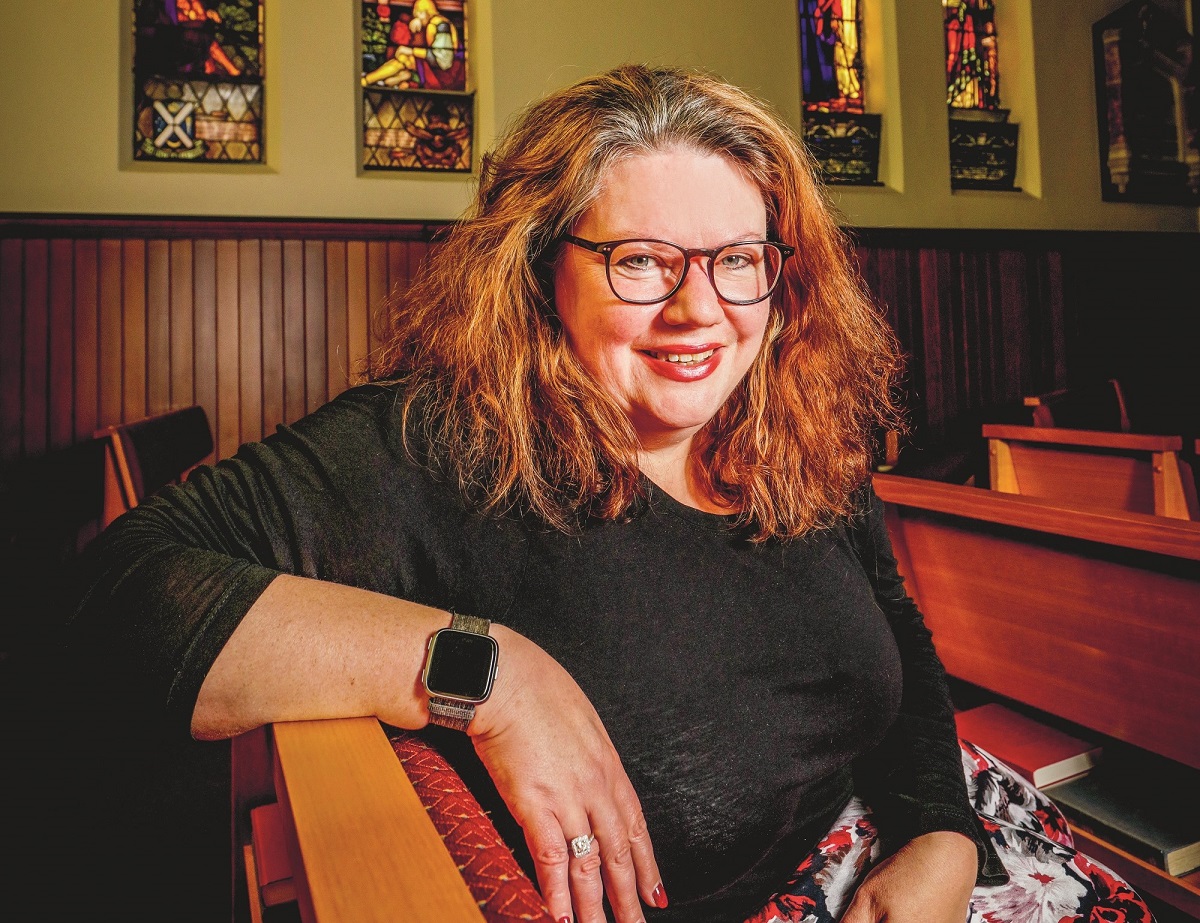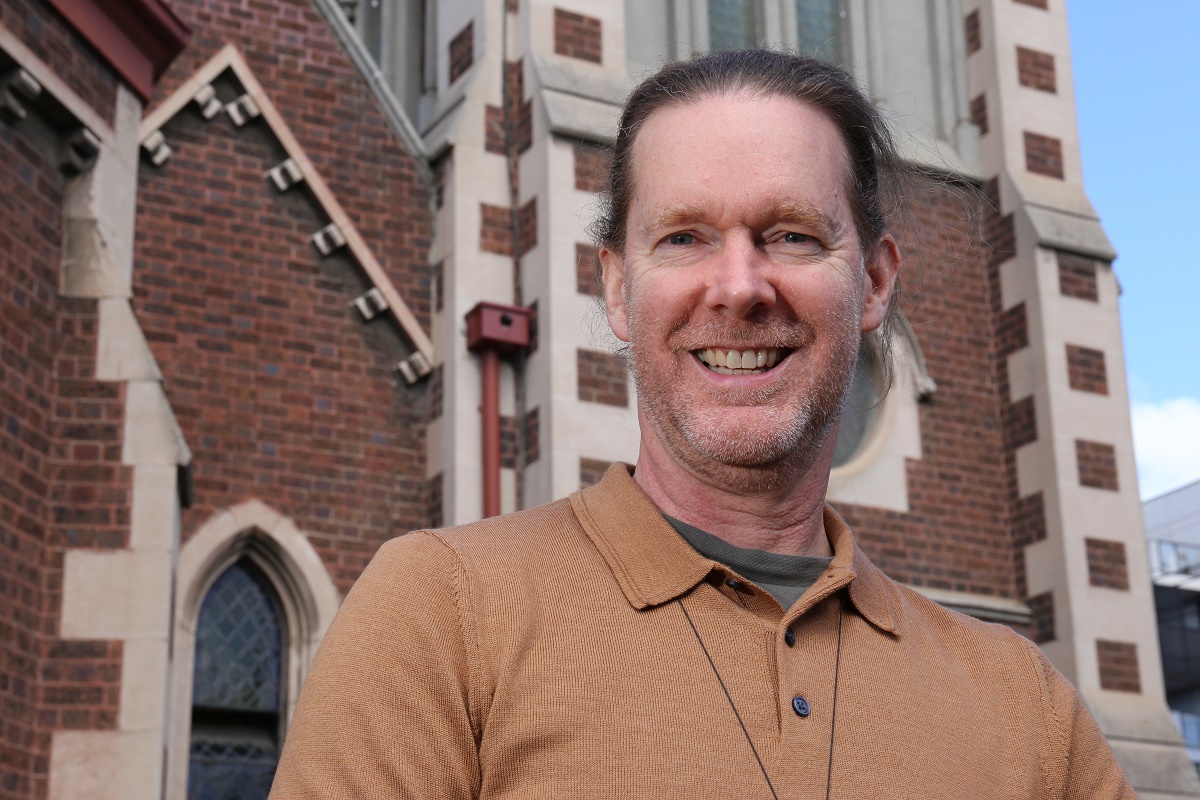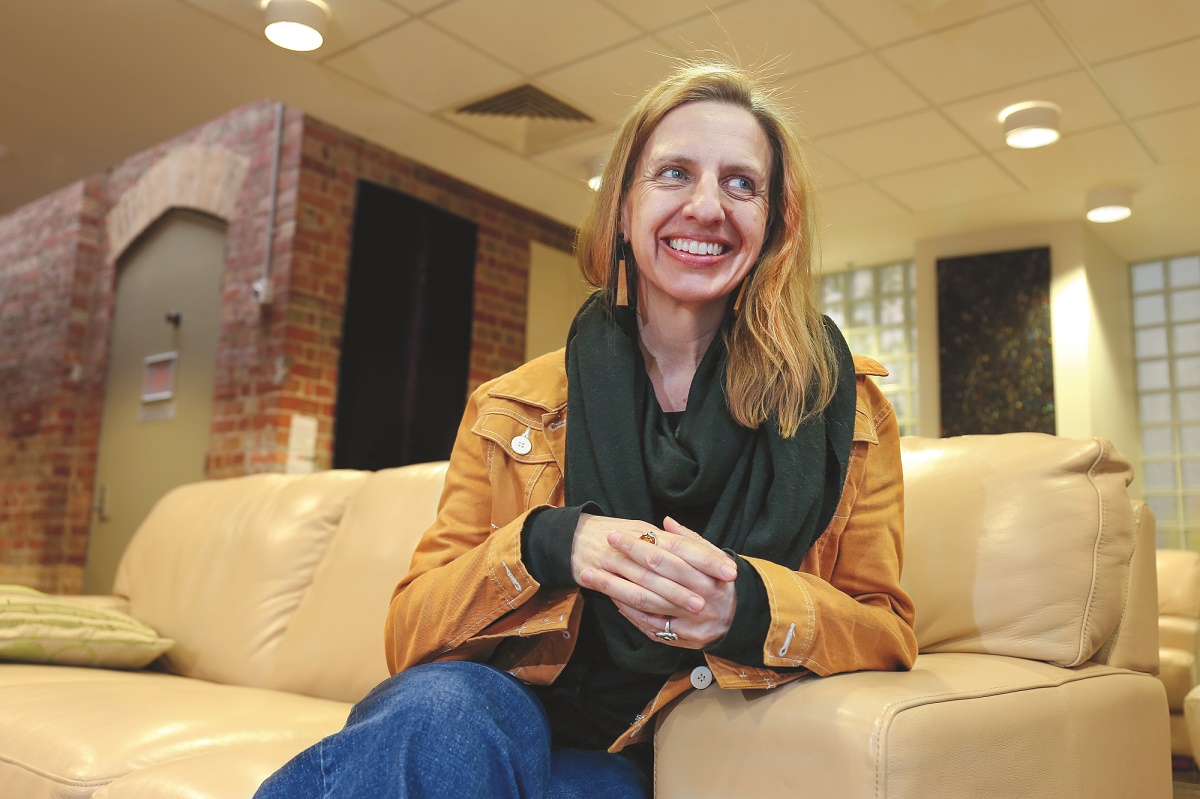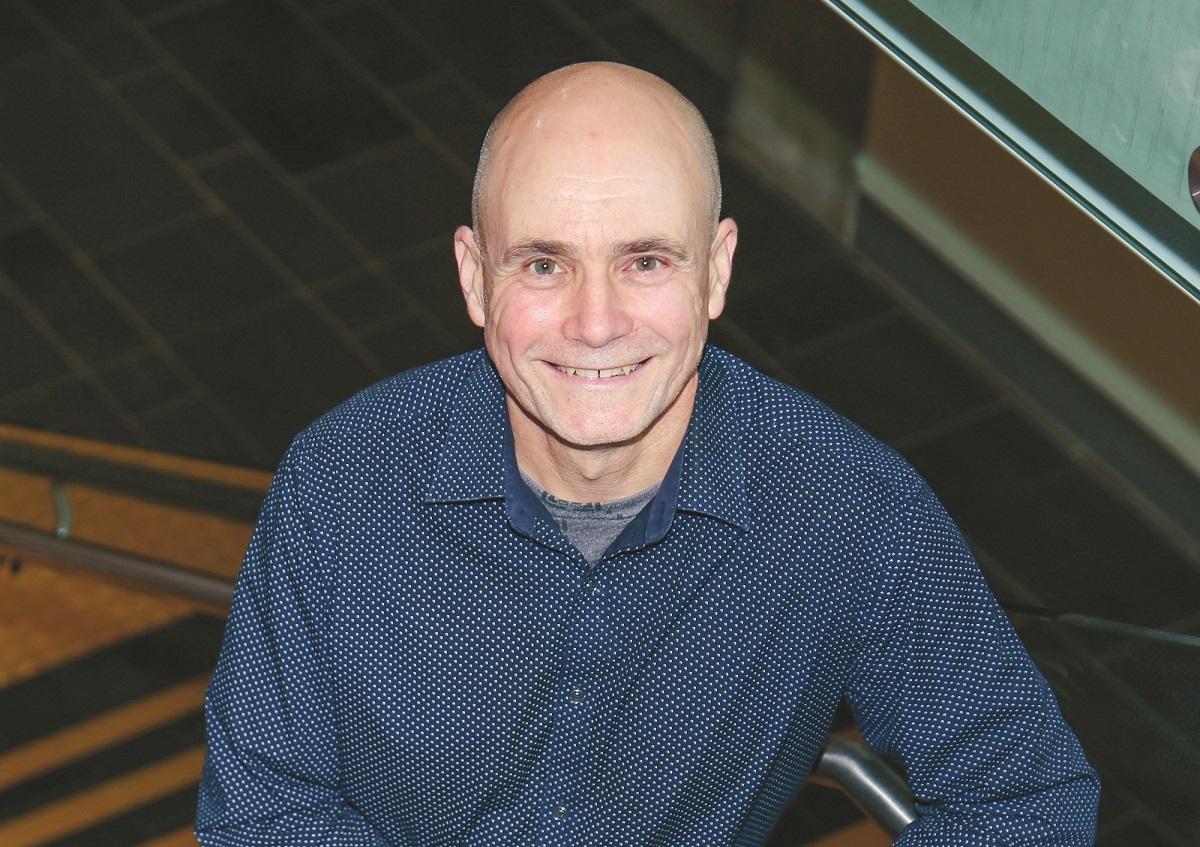By Andrew Humphries
Mark Twain once famously said reports of his death had been greatly exaggerated.
At first glance, Twain would seem to have little to do with the Uniting Church in Australia, but if we could stretch a long bow to within breaking distance, we might argue that his words perfectly sum up where the Uniting Church finds itself in 2022.
While its death may have been greatly exaggerated, perhaps it’s fair to say it’s not in the peak of health?
Like many things, of course, opinions vary widely, depending on who you talk to.
But as the Church emerges from the ravages of COVID-19, blinking in the sunlight and casting a wary eye at what lies ahead, its future seems to be a conversation well worth having, and it was a topic on the minds of Uniting Church members who attended Synod 2022 in Melbourne in early July.
The theme for that gathering was ‘Arise, come with me’ and, during the three-day event, members were asked to give deep thought to where the Church was heading as it emerged from the worst of the COVID-19 pandemic.
In the background to all of this were Census figures released in June which appeared to paint a bleak picture about the decline in religion among most Australians.
How bleak, though, is the picture for our Uniting Church?
Crosslight spoke to four Uniting Church figures to drill down deeper into where the Church sits as we head towards the end of 2022.
Banyule Network of Uniting Churches Minister Rev Sandy Brodine co-ordinated the evening session on day one of Synod 2022, in which members were invited to reflect on the fact that winter had ended and spring was here.
It was the perfect metaphor for how the Church might emerge from the darkness of COVID-19 into a new light and what tools it might need to make that transition.
“It was about pointing towards where God might be calling us to on a journey and it really talks about that metaphor of the winter being over: which can be read in a multiplicity of ways,” Sandy says.
“God is faithfully asking us to arise and come with Him and move forward into a new relationship.”

God is faithfully asking us to arise and come with Him and move forward into a new relationship,” says Rev Sandy Brodine.
Brunswick Uniting Church Minister Rev Ian Ferguson was the convenor of the facilitation team which gathered feedback on the Church’s future from focus groups during Synod 2022.
“We are always dealing with the Church’s future in a sense, and there are particularly weighty questions about the future right now that are relevant to this age,” Ian says.
“But the fundamental question hasn’t changed, in that our future is bound up in God’s future, so the question is, how do we best live out the coming Kingdom as the people of Christ?
“Every age has been confronted with different challenges and some people may see it as more cataclysmic and existential than at any other time, but I don’t necessarily feel that.
“I think God will always have a church, but it certainly won’t have the same shape that it once did.”
As New and Renewing Communities Catalyst, Rev Mat Harry has skin in the game when it comes to how the Church might evolve, and says only a lack of imagination stands in the way of real and meaningful change.
The Church, he says, can be taken in new and exciting directions.
“Absolutely, depending on the attitude that people bring,” Mat says.
“If it’s an attitude of despair assuming that the Church has failed then that won’t help us, but if we take on a curious disposition and try and work this through with others then there is huge potential.”
Rev Dr Sally Douglas is the Minister at Richmond Uniting Church, an author and a theologian, and believes the Uniting Church, despite its imperfections, continues to offer life-giving meaning and hope.
“I know the Uniting Church is flawed like any church, but I also think it’s uniquely placed in our community to share something of the story of Jesus and the invitation of Jesus to come follow and see how astonishing life can be, in a way that isn’t patronising or preaching down to people, or fearmongering and saying you have to believe us or you are excluded from God’s love,” Sally says.
While media reporting around the release of those Census figures in June focused on a decline in the number of Australians identifying as Christian, from 52.1 per cent in 2016 to 43.9 per cent today, Mat argues that doesn’t paint a true picture of what’s happening in Australia.
The reality, he says, is far more nuanced – and positive.
“There is a statistic from the National Church Life Survey carried out in November last year that showed the highest age group who had attended a worship service that month was 18-34, with 33 per cent attending in those four weeks,” he says.
“For the 50-65 age group, it was 11 per cent.
“We keep on hearing these stories that nobody is interested in Church, but this survey says that we are only hearing that because of who has the microphone at the moment, and the 18-34 age group just doesn’t have the megaphone at this stage.
“Additionally, the Census statistics ask whether people identify as being Christian or not, but that is civic identification and doesn’t really mean much.
“It hasn’t reflected a lessening in the number of people who are going to church, it’s reflected a lessening of people who actually identify as being Christian.
“I am very optimistic about this statistic from NCLS because it’s mind-blowing and undercuts the narrative in the Uniting Church that young people are not interested in faith.”

“I think God will always have a church, but it certainly won’t have the same shape that it once did,” says Rev Ian Ferguson.
Ask all four about the Uniting Church’s future and what emerges is a belief that we have a wonderful story to tell, we just have to learn how to tell it.
Sandy says it’s time we became loud and proud about what we offer to the world.
“As a result of this narrative around a dying church, we haven’t really focused on how we might grow,” she says.
“We haven’t seen ourselves as necessarily having good news to tell and I think it’s a really sad situation that we haven’t seen the changes that Jesus Christ makes in our lives as being something that we want to share with others.
“We need to shout our story more loudly and be proud of it and proud of the fact that we are an inclusive Church.”
Like Sandy, Ian says it’s time to start telling the world about the powerful and positive impact the Uniting Church can have on people’s lives.
“I was talking to someone the other day about what story the Uniting Church should be telling to the world and I think there is nothing fruitful to be gained in getting dragged into the story of decline and death, because there is no story to be told to the world there,” Ian says.
“But I think we continue as a Church to be really strong, particularly in the areas of social justice.
“We have these powerful agencies and congregations with a real heart for justice and the poor and we need to be continuing to tell that story so that the world hears who we are.
“At Brunswick, that includes telling the story of inclusion and acceptance and celebrating differences in terms of sexuality and gender, and we know the opposite story is told by many other churches.
“There is a story that we tell to ourselves and the world that shapes our identity and might speak to people who are searching for belonging, faith and connection and a way to share together with others in the liberating work of the Gospel.”
It does mean, though, that some serious thinking is required around how the Uniting Church can best position itself for the future.
In doing that, Sally says, it needs to rethink how it has changed over the years in what it means to be faithful. In short, the Uniting Church needs to address the fundamental question of why it now exists and what role it is meant to play in a changing world.
Engaging with this question will mean accepting that the Church doesn’t carry the weight that it once did in the wider society.
“While for some people there is grief about the way the church is changing and we need to honour that grief, for others there is an amazing invitation for us to go back to the core question of what are we here for?” Sally says.
“I think in the past it has been harder to work out the answer to that faithfully because we have had a cultural assumption of what we are here for, but those cultural things are falling away and the Church is no longer in the centre of everything.
“If we are brave enough we can attend to that question of what are we here for, and I would argue that that is the core question.
“My answer to it is that we are here to be open to relationship with the living God – to encounter with the Source of all who comes to us in Jesus.
“It doesn’t mean that people who don’t go to church aren’t encountering God, but the Christian perspective of faith is that the divine takes on flesh in Jesus and invites us into a story of radical change, where we discover that this God uses power for healing, feeding and forgiving people, and gathering them in – and that this reveals the character of God, she who is seeking to build up and nourish and heal, and speak hard truths to power.
“We discover that we are beloved … and the core is that we are being invited into this living dynamic of God that is revealed in Jesus and continues among us if we are open to it.”

Rev Sally Douglas says the Church needs to consider how society has changed in recent years.
Sandy says renewal can sometimes mean being prepared to move in a new direction as opportunities present themselves.
“It’s really about trying to have the conversation about where God might be calling us as a Church,” she says.
“A lot of us work in that new and renewing and fresh expressions space, so it is about how do we create space and make energy for new ways and opportunities of being church.
“We have a lot of rules and governance that takes up a lot of time and energy, so it can be difficult to invest time and energy into other things.
“Congregations spend a lot of time having church council meetings and dealing with administration and managing buildings that need to be repaired, so it can be hard to find the energy to say ‘well, what might God be calling us to do in our local community or how can we engage people with the story of Jesus’.”
But if change must start with brutal feedback, it’s Mat and Sally who are prepared to tell a few home truths about how the Uniting Church needs to move with the times.
It must, says Mat, become a church that young people want to be a part of. Along the way, he says, it could also do with some sprucing up.
“The truth is that young people are interested in faith, but not interested in how the Uniting Church lives out faith in the community,” he says.
“They find it utterly boring, but that doesn’t mean they aren’t interested in what Jesus has to say.
“We won’t engage them when our worship service looks like you have stepped back into 1960 in terms of décor and we are playing hymns from the 1800s.
“No kids are listening to their grandparents’ music, so why would we offer them worship in ways that don’t make sense to them, they just aren’t interested.
“Christian community is relevant in people’s lives as long as we live it out in ways that grapple with questions that people are actually grappling with and address issues that people need addressed.
“For example, the way the world has changed now means that loneliness and isolation are at epidemic levels, and the panacea for that can be Christian community. So we need to start seeing that rather than looking at the fact the world has now changed in ways where civic religion or civic Christianity is never going to cut the mustard.
“We need to rediscover our identity as disciples of Christ and what that means in the 21st century, because there is a yearning in our society for some answers to the complexity and depth of life.”
As she ponders the question of how best the Uniting Church might move forward, Sally reflects on her own approach as the Minister at Richmond Uniting.
In doing so, she zeroes in on one key word: accessibility.

Rev Mat Harry says the Church needs to become more accessible to young people.
“New people come to a service at Richmond almost every week and sometimes we see them again and sometimes we don’t, but my working assumption is that worship has to be accessible for someone who has never been in a church before,” Sally says.
“So when I’m leading a service I explain what we are doing as we go along. It’s about explaining things along the way so people know what is happening.
“So our ancient rituals don’t need to be ditched, they are precious, but we do need to explain them.”
Christian faith is anchored in the mystery of dying and rising, and Sally says renewal comes when we let go of what isn’t working for us in worship, so that the new life can be birthed.
Sally believes the Uniting Church has unique gifts to offer the wider community.
“We take seriously the fact that the Bible contradicts and we need to be engaged with it with our brains, hearts and spirits, and we take seriously inclusion and the voices of others, particularly those who have been pushed to the edges, and we take seriously justice,” she says.
“I think what we haven’t taken as seriously is the place of experience and encounter with Great Spirit in worship, so that when people are leading worship, lay or ordained, it seems to me that sometimes there is a sense of going through the motions rather than carving out space for silence and questions.
“The core question for all of us is not ‘how can we attract people?’ but, instead, ‘if you’re embarrassed to invite your friend to church, maybe because the songs are daggy or the sermon isn’t very well prepared, or for other reasons, what needs to change in worship?’, because your intuition that it’s not working is probably correct.
“I think we need to listen to that intuition and have really strong conversations in our church about clearing out the stuff that doesn’t help, and creating space for people who have never been to church, whose closest connection to church might have been seeing a religious painting at an art gallery.”
That doesn’t mean, though, that church and faith shouldn’t challenge us, Sally says.
“We sometimes think if we make something easy for people they will be more attracted to it, but that’s not the case,” she says.
“People really actually value the challenge of ‘this is serious’, and to actually sit before Jesus is really disruptive of your life and frustrating, amazing and challenging.
“The notion that someone – the divine – has dreams for you and that you might share your gifts in the world, and how we might discern what that might be is much harder, but people are genuinely much more attracted to that and they want to be challenged.”
Mat says we shouldn’t be shy in proclaiming our track record of being a progressive and inclusive church as a selling point to people.
“I think firstly we need to claim our identity and distinctiveness,” he says. “The distinctiveness of the Uniting Church, particularly in Victoria and Tasmania, is that we are the most inclusive denomination.
“We need to claim that and own that because it actually means that we are theologically very attractive to people beyond the church.
“However, the ways that we gather, operate and live out our Christian lives in community quite often is reflective of traditions and patterns that do not reflect the way that people live their lives now.
“We have a theology that is very open and we don’t leverage that in the ways that we could and we should.”

Trust in God and wonderful things will happen, says Rev Sandy Brodine.
Mat uses Ashburton Uniting Church, in Melbourne’s south-east, as an example of what can be achieved through strong community engagement.
“Lavingi Fine is the Minister in placement there who understands there is massive goodwill in the community, and if the church effectively serves the community, there will be people who will collaborate,” he says.
“You just have to try some things and when you do you will find people from the wider community who are willing to get on board and do the missional activity with you and then you will gain momentum and things will happen.
“So what has happened at Ashburton is that Lavingi started a food pantry during the pandemic, she posted something about it on Facebook and then people from the broader community started to stock the pantry, which is located outside the church door and can be accessed by anyone.
“From that they have started a soup night and that has meant they have got quite a few volunteers from the wider community who have jumped on board to work with them on this.
“That’s what happens when you provide an opportunity for people beyond your church community to give and they can experience the joy of giving for themselves.”
It’s a template, he says, worth looking at as the Church further explores how to be Christian community in the current context.
With winter now behind us, Sandy suggests spring is inviting us to arise and journey with God towards a brighter future as the Church considers its place in the world.
Trust in God, she says, and wonderful things will happen.
“You just let the Holy Spirit blow through, you just allow it to engage us in trying new things,” she says.
“And it will be local and indigenous and appropriate to particular areas and there will be logic to why it is what it is.”
Like Sandy, Sally says trust in God will open up endless possibilities.
“We are in a pivotal moment and my confidence is in God, but the Uniting Church has to do the hard work of saying ‘what are we here for’, and attending to what I think is the core work,” she says.
“So if we believe the Gospel is life giving, how do we authentically let people around us know about that in ways that are not preachy or paternalistic, just holding the space gently and clearly, and then serving those in need.
“If we are not attending to those core things and think we need to be relevant or trendy, which are secondary things, we may well die.
“But God will work with those who will work with her and I am hopeful we will have the courage to let go of the idols of what the church was and attend to what should be the core.
“If we can do that, God can make a feast out of scraps, with love, healing and hope.”

The emergence of COVID-19 brought forward discussions around the future of the Church, says Rev Ian Ferguson.
Looking ahead is a Covid operation
As the Uniting Church grapples with the question of how it’s best placed to meet the future, it is some of the nuts and bolts issues that need to be addressed.
When members were asked for feedback during Synod 2022, they made it clear a conversation was required around a number of things as the Church moves forward.
Rev Ian Ferguson says while this was a conversation that was always going to happen, it was brought forward by the upheaval and turmoil caused by the arrival of COVID-19 in early 2020.
“It was a conversation that was needed and is always needed,” he says. “It’s pressing now and the discussion is given particular shape by the pandemic, and having it now does make it a discussion significantly influenced by that, which obviously it wouldn’t have been pre-pandemic.
“The pandemic will change the shape of the Church forever and have an ongoing impact for years to come.”
Like Ian, Rev Sandy Brodine says the conversation around the Church’s future was always necessary, whether or not the pandemic brought it into focus.
“This has been coming for a very long time, it’s not a new situation for the Uniting Church, but the pandemic might have escalated the need for it,” Sandy says.
What the pandemic did, say Ian and Sandy, was change the nature of worship at a most fundamental level.
From months of lockdown and isolation came the emergence of online worship, which was embraced by many congregations, while others found adapting to it a bit more difficult.
It’s important, Sandy says , to look at some of the opportunities that opened during the pandemic.
“What it has done is shown us what is possible beyond our geographical boundaries,” she says.
“Communities meeting online, for example, has really changed the way we feel about church and given us opportunities that we would never have thought possible.
“Yes, it has made it hard for some people to leave home and come out, because of COVID, but on the other hand (it has opened opportunities) and you don’t have to look very far to see lots of examples of very small things that are starting to emerge.”
At Brunswick, Ian says the pandemic opened the door to a level of flexibility that hadn’t existed.
“A positive aspect was the way we pivoted to using alternative means of gathering, and I felt we did that in a multi-layered way and we had strands to our connection,” he says.
“Various online Zoom groups met and there was our Sunday worship program, a recording and Zoom gathering afterwards and we continue to use those online gifts, as most places do now.
“We have a lot of meetings on Zoom, which previously would have been in person, and so we are able to include more people in leadership now.
“There is more flexibility around the ways people can participate, and through livestreaming our services we have a broader reach for our worship than we did pre-COVID, and we know there are people connecting from all over Australia.”

Lockdowns as part of the COVID-19 pandemic encouraged many congregations to explore online worship in more depth.
During Synod 2022 in early July, members pondered in the wake of COVID-19 what unhelpful baggage the Church could leave behind as it embraced God’s promise of new spring growth.
Members talked of the need for more collaboration among church councils, the key role to be played by our institutions such as Uniting Vic.Tas and U-Ethical in supporting initiatives, and the necessity for a conversation around the conflicting priorities of property and mission.
Feedback groups discussed pruning the complexity of buildings and property, when dealing with issues such as insurance and maintenance, to allow them to focus on people rather than assets, while letting go of the traditional Sunday morning worship, and the vexed issue of amalgamation, were also aired.
Ian says any discussion about building use and associated costly maintenance must begin with a simple question: why do those buildings exist and are they serving a useful purpose?
Is there potential to sell them as part of the Money for Mission program, while smaller congregations also consider amalgamation?
“At Brunswick, we have been doing quite a bit of thinking around this because we have a large heritage suite of buildings, a beautiful church and massive hall which are in very good condition and well maintained,” he says.
“So the big question is why? What is the purpose of having those buildings?
“It costs a ridiculous amount of money to maintain those buildings, we need reserves of hundreds of thousands of dollars to maintain them, but those buildings are alive with God’s mission through asylum seeker programs, a drop-in centre, and arts programs, so during the week our site is busy and lots of people from all walks of life come through and enjoy and contribute to it.
“At Brunswick, our property is being used really positively as part of God’s mission, but in other places is might be a terrible burden and I have seen that in some of my other placements.
“There will be places where amalgamation is really fruitful for some congregations and other examples where a small congregation may be able to continue across a region by sharing ministry.
“Different things will work in different places.”
As congregations pivot towards the future, Sandy suggests the conversation about bricks and mortar is more important than ever.
“Certainly Money for Mission is at the front of people’s minds around getting them to think about whether a particular building their congregation might have is still fit for the purpose of running traditional activities or is it past the point of that and would it be better to sell it to work with people down the road to do something different in a different space,” Sandy says.
“Over the last decade, a number of networks and clusters have worked hard to come together, but it has been done in very different ways, for example.”
“There are some really interesting models around the Uniting Church on how it’s being done, and it’s a really interesting question to explore: what is good missional use of property and what sort of things can we do in our properties? But it is different from property to property and from community to community.”

While there is still a place for traditional Sunday worship, other options have been explored by some congregations.
And what of the traditional Sunday service, the bread and butter of congregations for so many years?
While there may still be a place for that type of gathering, it’s clear some congregations have grasped the opportunity to head in a new direction.
“There is definitely still a place for traditional Sunday worship, but I think it has to sit alongside other things,” Sandy says.
“Of course there are people, old and young, who find the traditional worship of hymns, praying and a sermon really useful.
“Some families like the idea of Messy Church, where you can go in and get your hands dirty and do stuff together, but other people might hate that, so I think what you need is a number of small things side by side that can be allowed to grow together.
“It’s certainly not about having to replace all traditional worship with something different.”
As she ponders what lies ahead, Sandy is confident Uniting Church members will come together to ensure that it’s a bright and positive future.
“Some congregations are really tired and struggling and that is a very real and palpable thing, and the death of a congregation is very sad, but in other places there are small seeds of hope,” she says.
“So, it’s not a uniform story and I just wonder how those places where there is hope can shine that light forward for places where there isn’t any, so that we can come together and share our resources better.
“There are a number of small groups that are thinking about how we support entrepreneurial and new ministry across the church and that is a conversation that is alive in a number of places.
“It’s about how do we get the wider church to embrace and support that.”

